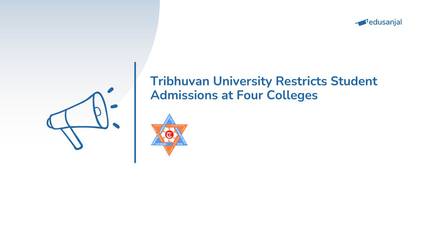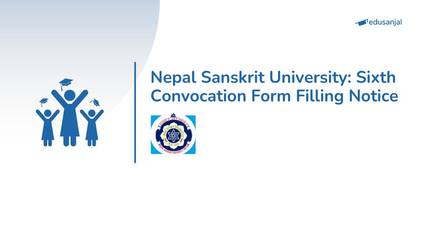After the historic people´s movement in 2006, subsequent overthrow of centuries old monarchy and Constituent Assembly elections, everyone is holding out for a New Nepal. We are about to pen down a new constitution and with all efforts and energy concentrated on this one endeavor, there is almost a feeling that once we draft a new constitution Nepal will magically transform into this Utopia of a ´New´ Nepal. However, what must be understood is that the task of nation building is a continuous process; one which needs to be driven by a vision.
The future of Nepal and the direction of higher education are entwined. The biggest agent of change toward a better Nepal is an educated population. Current trends show that an increasing percentage of our youth are venturing abroad in search of quality education. Parents are selling off ancestral properties and taking burdensome loans to be able to allow their children to pursue higher education in foreign shores like the United States, the United Kingdom, Australia and India. It is common for Nepali students, in these foreign colleges, to finish a four- year degree in five to eight years because they have to work in order to help finance their education and a considerable percentage of these people do not return to Nepal; all this is a result of our inability to provide the education that they seek.
Several problems plague our education system – from lack of budget and quality to politicization of educational institutions and students being misused as political muscle. Higher education is perhaps the most riddled with these problems. In the past Purbanchal University has been shut down due to protests against corruption, students have padlocked Kathmandu University and Tribhuvan University has had a history of being closed for every whim of the student body. With such disruptions at the very core of knowledge and progress it is quite understandable that our youth seek education elsewhere.
The government in recent months has initiated the process of dialogue to review higher education. Academics, experts and policy makers have been discussing the long overdue restructuring or overhauling of the framework for higher education. How and who will manage higher education and how to restructure it are the two major issues in revamping of higher education in the country. The Ministry of Education and University Grants Commission are two institutions likely to manage higher education. However, Ministry of Education´s expertise, so far, has been in primary and secondary education which, in my opinion, is a whole different ball game from higher education. The ministry lacks academic strength and thus will be unable to manage higher education. However, even before restructuring and formulating new strategies we need to envision the underlying ideas and values, a set of directive principles of sorts to guide all educational strategies and restructuring.
Firstly, and very importantly, higher education needs to have a sound grounding in values to help create citizens with a sense of social justice. When we talk of a transition, what values do we envision in the new Nepal? These values need to be inculcated over a period of time. Higher education system is an institution through which values can be instilled into future generations. Issues such as social exclusion and unequal treatment of women have come to the fore in recent years. Our education system has if not directly reinforced then, done very little to sensitize the people about such issues. Notions of ethnic and religious superiority have often appeared in academic books and it was only until recently that affirmative action was taken to ensure a more inclusive enrollment of students. A feudal, ethnically biased person with notions of ethnic and class superiority is one whose education probably did no sensitize him or her to the values of social justice. Social evils cannot be combated by legal measures alone. The right value based education will diminish the possibility itself of social injustices being carried out.
Secondly, any education policy must be underlined by the aim to develop knowledgeable citizens who can contribute to the smooth functioning of the nation and the development of the society. This principle will then direct formulation of the curriculum, the quality of education and even distribution of universities and colleges. There needs to be a concrete vision – not an abstract utopian one: Do we want to strengthen Nepal´s agricultural development? Should we foray into technological advancement? Should our focus be on tourism? What kind of policymakers, bureaucrats and diplomats do we need to run the country? This vision needs to be crystallized and all these considerations made for only then can we accordingly set about to educate, train and equip our citizens to realize the vision. This vision will in turn provide answers to what kind of knowledge, skills and abilities need to be developed.
Thirdly, higher education should be directed toward improving the critical thinking of students. Innovation and creative thinking, culture of exploration and research are the engines of transition. No change, no good change in particular, came out of an unquestioning mind. No longer are we suffering under a regime whose interests lay in leaving the public an un-inquiring mass that would never question the feudal hierarchy and consequent injustices and thereby leave their status-quo unshaken. That is not the case now. Now is the time to create generations of inquisitive, questioning, seeking, learning individuals who can spearhead us into an age of change. True education is not and should not be passive. A culture of questioning needs to start – to question corruption, to question blatant impunity, to question injustices. This inquisitiveness and exploration should be encouraged through the education system.
There are several impediments to the above endeavors not least of which is the politicization of students or rather the political misuse of students. The organizing capacity of higher educational institutions like colleges and universities has been often misused by political bodies as muscle power. Universities and campuses have been defamed as simply being fertile ground for political hooligans. Classes have often been abandoned in favor of protests and vandalism. Students and academicians have often been at the forefront of important movements – from the Tiananmen Square protests in China to the more recent Egyptian revolution. Their spirit, activism and intellect have been utilized to protest wars and autocratic rule. However, converting students into thugs to vandalize and participate in violent protests is an entirely different thing. What we must remember is that by doing so, we are simply compromising our own future. Imagine a decade from now when the working generation of Nepalis will be largely those who instead of attending classes spent a large amount of their time being engaged in stone pelting, vandalizing and street demonstrations. Let us not desecrate knowledge, which in our culture is revered as being holy.
Equal opportunity is often touted at the basis for fairness and equality. This is very much the case when it comes to job opportunities and such. However, one must understand that an equal opportunity alone is not enough when it comes to education. The language for entrance tests and teaching for technical subjects is English. A large percentage of the rural population is thus unable to pass these tests and study these subjects by, what is almost, a default. This highlights the disconnection that exists between primary, secondary and higher education in Nepal. This hindering factor needs to be understood and the higher education system must work in close tandem with primary and secondary education system to work through this barrier.
The drive toward a consolidated higher education policy is commendable. What must be remembered is that all efforts need to be based on certain guiding principles to give them cohesion. The kind of citizen we need for the future, the culture of exploration and a strong basis of values must help frame all future endeavors in the field of higher education.
Writer is the Executive Director of Niti Foundation
(Source: The Republica Nepal)












